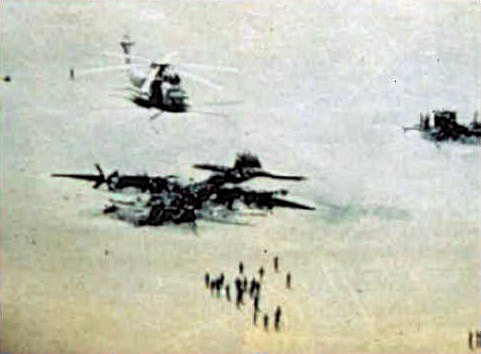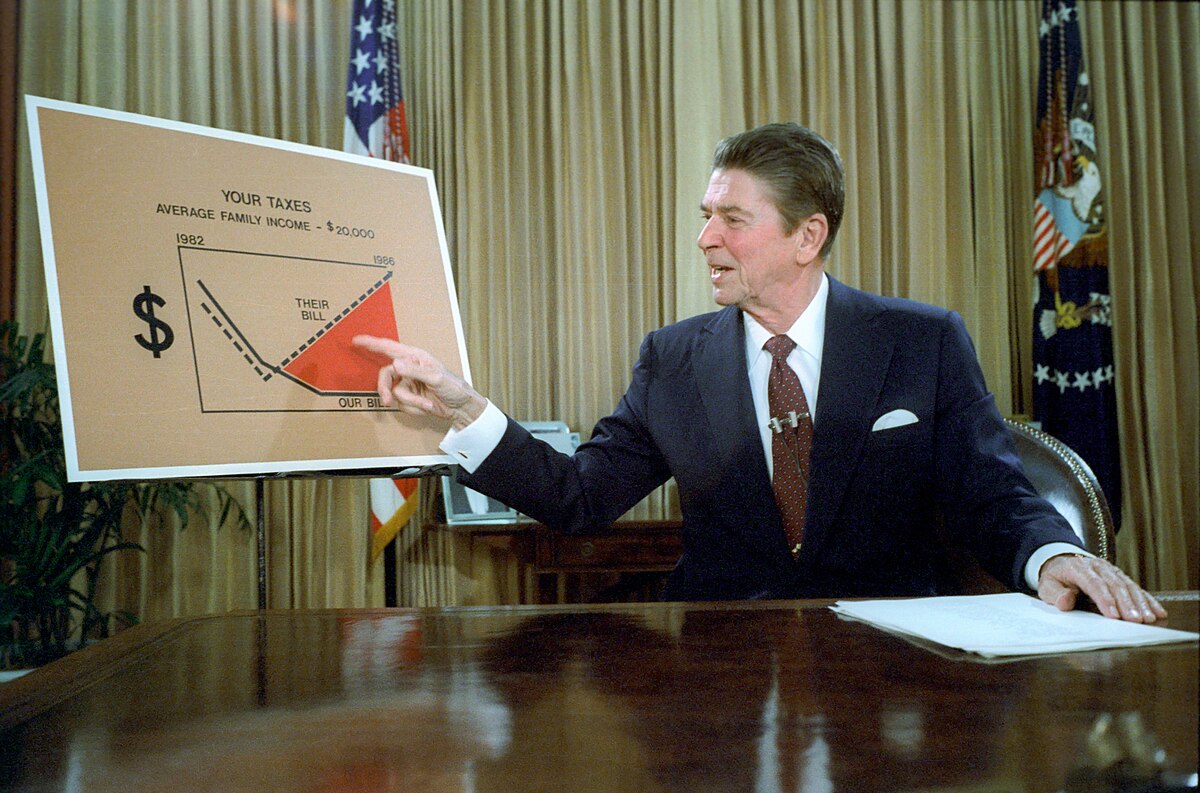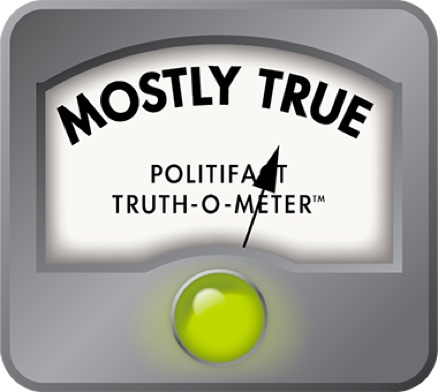On Mar. 30, 1981, 69 days after Reagan’s inauguration on Jan. 20, John Hinckley, Jr. attempted to
assassinate the President outside the Washington Hilton hotel. Reagan was shot under the left arm, the bullet lodged in his lung, and missed his heart by less than an inch. [
2]
When Ronald Reagan took office the US economy had 9% inflation with 20% interest rates. [
50] To combat these effects Reagan established what came to be known as “Reaganomics,” economic policies that included increased defense spending, lower personal income taxes, reduced spending on social services, and decreased business regulation. [
51]
The President and his cabinet emphasized supply-side economics, believing that slashing taxes will stimulate economic growth. They passed legislation such as the Economic Recovery Tax Act of 1981, which included the largest tax cuts in the postwar period, the Tax Equity and Fiscal Responsibility Act of 1982, and the Tax Reform Act of 1986. As a result, the top marginal tax rate on individual income was reduced from 70% to 28% and the overall tax code was restructured. [
37] [
52]
13,000 members of the Professional Air Traffic Controllers Organization (PATCO) walked off the job in a nationwide strike on Aug. 3, 1981. Two days later, Reagan announced that they were in violation of legislation prohibiting strikes by government employees because of public safety and, if they did not report to work within 48 hours, their jobs would be terminated. Only 1,300 returned to their jobs. [
42] It was an event that changed the landscape of US labor relations – major strikes plummeted from an average of 300 each year in the decades before to fewer than 30 in 2006. [
20]
On Aug. 19, 1981, Ronald Reagan fulfilled his campaign pledge to appoint the first woman to the Supreme Court by nominating
Sandra Day O’Connor to replace Justice
Potter Stewart. Congress confirmed O’Connor’s appointment on Sep. 21, 1981 by a vote of 99-0. [
3]
In the fall of 1981, the US economy took a turn for the worse, experiencing its worst recession since the Depression. The
Federal Reserve increased interest rates to combat the 14% inflation rate. By Nov. 1982, unemployment reached 10.8%, thousands of businesses failed, farmers lost their land, and many sick, elderly, and poor became homeless. [
2] The official unemployment rate reached 11.5 million in Jan. 1983, and
Reagan’s disapproval rating rose to 50%, from a low of 18% in early 1981. [
53][
54]





